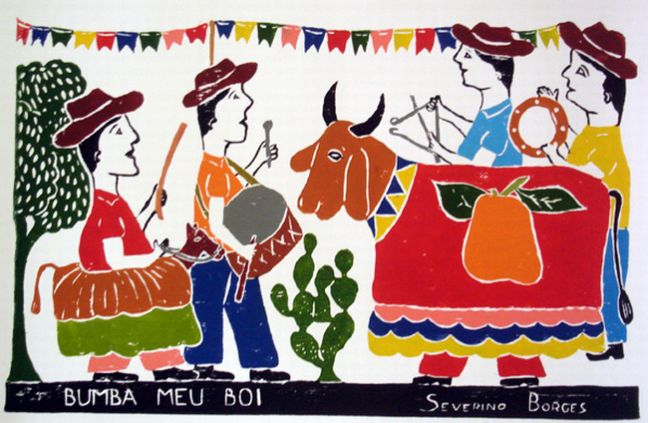Ata Jangouk & Farid Mozaffarzadeh
Navaye BiNahoft
15 tracks
Ata Jangouk - tar
Farid Mozaffarzadeh - tombak
15 tracks
Ata Jangouk - tar
Farid Mozaffarzadeh - tombak
♫☆`*♥¸¸.•*¨*•♫☆`*♥¸¸.•*¨*•☆♫
.ღ•:*´♥`*:•ღ.
♫☆`*♥¸¸.•*¨*•☆♫`*♥¸¸.•*¨*•☆♫
.ღ•:*´♥`*:•ღ.
♫☆`*♥¸¸.•*¨*•☆♫`*♥¸¸.•*¨*•☆♫
Ata Jangouk
Short Description
مــردن عـاشـق نمي ميــرانـدش / در چراغي تازه مي گيرانـدش
Personal Information
عطا جنگوک، نوازندهٔ ایرانی تار و سهتار و پژوهش گر و مدرس موسیقی در پاییز 1327 در شهرستان لار متولد شد.
با علاقه وافری که به موسیقی داشت از 16 سالگی مشق موسیقی را با تار آغاز نمود و برای آموختن اين ساز چند صباحی به تبریز رفت و نزد استاد محمد حسن عذاری_ از شاگردان درویش خان _ به یادگیری تار پرداخت.
وی تا مقطع دیپلم را در زادگاهش سپری نمود و در سال 1351 وارد دانشکدهء هنرهاي زيباي دانشگاه تهران گردید. در سال هاي دانشکده از محضر اساتید بزرگ ردیف، همچون نور علی خان برومند و دكتر صفوت بهره برد.
شاگردی مکتب علی اکبر خان شهنازي_ ردیف دان و استاد بی همتای تار _همواره آرزوی او بود.با راه یافتن به مکتب استاد حدود 10 سال به فراگیری راز و رمز موسیقی ایرانی پرداخته و به واسطهء تلاش بی وقفه اش، همزمان به تدریس سایر شاگردان استاد زیر نظر ایشان پرداخت و خليفهء كلاس شد .
عطا جنگوك در سال هاي دانشكده ، رديف هاي آقا ميرزا عبدالله و آقا ميرزا حسين قلي و هم چنين رديف و ضربي هاي استاد شهنازي را تمام مي كند و در ضمن در سال 1352 به مركز حفظ و اشاعهء موسيقي راه پيدا كرد و از اين زمان بود كه نواختن سه تار را نيز زير نظر اساتيد بزرگي چون سعيد هرمزي و يوسف فروتن آغاز نمود .او هم چنين مدت ها از محضر غلام حسين بيگجه خاني استفاده كرد .
فعالیت وی در مرکز حفظ و اشاعه موسیقی در سالیان متمادی منجر به همکاری وی با اساتیدی چون مرحوم علی اصغر بهاری و مرحوم رضوی سروستانی شد.
بهره مندی از محضر اساتید بزرگی که هر کدام گنجینه ای از موسیقی ایرانی بودند از یک سو و خلوص و بداعتی که در مواجهه با آواها و نواهای ایرانی در وجود او بود از سوی دیگر، منجر به پیدایش لحنی صمیمی، دلپذیر و گرم در آثار او گردید.
وي در دو زمینه موسیقی محلی (فولکلور) و موسیقی ایرانی فعال بود و برخورداری از شخصیت ویژه هنری در هر دو گروه از آثار وی، حکایت از عمق بینش و نگاه توام با آگاهی به موسیقی این مرز و بوم دارد. آثار وی در حوزه موسیقی محلی شامل گرد آوری، ساخت و اجرای موسیقی های فارس، بختیاری، بندر عباس و به طور عمده جنوب غرب ایران است. محبوبیت دو سویه این آثار در بین مخاطبین هم زبان و غیر هم زبان نشان از تسلط او به شاخصه های موسیقی محلی دارد. چنان که ارائهء مطلوب و خلاقانهء آثار موسیقی محلی توسط وی منجر به خلق کارهایی بسیار ماندگار در این حوزه شده است. آثاری که شایستگی یافته اند که در نزد مردم زمزمه شوند و شنونده هر چند واژه ها را نمی شناسد، اما به سبب بیان روان ساده و در عین حال ژرف اثر، در جریان فضای کلی و روحیه حاکم بر آواها و ترانه های محلی ارائه شده قرار می گیرد.
آلبومهای "چشم به راه" (خواننده: شهرام ناظری)، "همسایه" (خواننده: علیرضا افتخاری) و "سرو و ماه" (خواننده: بهرام باجلان) از ساختههای عطا جنگوک در زمینه موسیقی سنتی ایران است.
«مال کنون» و "هی جار" در زمينهء موسيقي در ايل بختياري ، " پرستاره " در زمينهء موسيقي محلي فارس و «یار کدیم» در زمينهء موسیقی هرمزگان است.
او هم چنن دو اثر تك نوازي سه تار به نام هاي " نوروز " و " نواي بي نهفت " دارد .
در دو اثر "هی جار" و "مال کنون" می توان جوهره زندگی کوچ نشینان را لمس نمود. زندگی، عشق، هجران و کار، دلبستگی های قومی و احساسات ناب و ساده ایلاتی ها را تجربه کرد و صدای احساس بر انگیز و گوش نواز زنگوله ها در زمان کوچ ایل را از لا به لای مضراب های ساز شنید.
همنشینی صمیمانه سازها در کنار هم از ویژه گی های بارز آثار جنگوک است. در گروه آثار محلی وی، سازها ضمن حفظ استقلال و هویت خویش، به هماهنگی مطلوبی می رساند و نمونه برجسته ای از اجرای ملودی های محلی با گروه سازهای ایرانی را به وجود می آورند. حزنی عمیق و شیرین در تمام آثار جنگوک موج می زند که مخاطب را آرام آرام به خود فرا می خواند و از لا به لای صداها، به شنونده رخ می نماید. آثار جنگوک در زمینه موسیقی ایرانی نیز دارای ویژه گیهای منحصر به فرد است. برخورد خلاقانه در ترکیب سازها و توجه به استقلال آنها در حین همنوازی از جمله این ویژه گیهاست. در این گروه از آثار چه به صورت گروهی و چه به صورت تکنوازی، آن چه بر کلیت اثر احاطه دارد روحیه و احساس هنرمند است که در فرم دادن به اثر حرف آخر را می زند. صریح ترین تجلی نگاه و سبک هنرمند را در "نوروز" که تنها نوازی سه تار است می توان مشاهده نمود. آثار جنگوک به واسطه صمیمیت، سادگی و خلوص به موسیق ایرانی فرصتی دوباره می بخشد تا به جایگاه اصلی خود که همانا میان مردم است بازگردد.
ديگر فعاليت ها :
_كنسرت هاي " ماهور " ، " بيات اصفهان " و " بيات ترك " با همكاري خانم " پريسا "
_تنظيم و اجراي موسيقي به مناسبت جشن هنر شيراز با آواز مرحوم "رضوي سروستاني"
_سرودهاي انقلابي چون "فرياد سياوش "(قيام) ، " پسر ايران " ، " گلباران " ، " جنگ و گريز " ، " بهار آزادي " ، " بيا و خرم شو " و ...
_موزيك متن چند فيلم مستند
_كتاب هايي چون " ترانه هاي محلي فارس " ، " سوز و ساز " ، " گشايش " و " نواي بي نهفت " و ويرايش كتاب دستور مقدماتي تار و سه تار
جنگوك يكي از چهره هاي بي ادعا ولي بسيار قابل بحث در موسيقي است كه در تمام اين سال ها شاگردان فراواني را تربيت كرد و زحمات بسياري براي پيش رفت فرهنگ و هنر اين مرز و بوم كشيد .
وي در تاریخ ۱ اردیبهشت ماه ۱۳۸۹ شمسی به علت سکته مغزی در تهران درگذشت. یادش همواره جاوید و گرامی
source
Short Description
مــردن عـاشـق نمي ميــرانـدش / در چراغي تازه مي گيرانـدش
Personal Information
عطا جنگوک، نوازندهٔ ایرانی تار و سهتار و پژوهش گر و مدرس موسیقی در پاییز 1327 در شهرستان لار متولد شد.
با علاقه وافری که به موسیقی داشت از 16 سالگی مشق موسیقی را با تار آغاز نمود و برای آموختن اين ساز چند صباحی به تبریز رفت و نزد استاد محمد حسن عذاری_ از شاگردان درویش خان _ به یادگیری تار پرداخت.
وی تا مقطع دیپلم را در زادگاهش سپری نمود و در سال 1351 وارد دانشکدهء هنرهاي زيباي دانشگاه تهران گردید. در سال هاي دانشکده از محضر اساتید بزرگ ردیف، همچون نور علی خان برومند و دكتر صفوت بهره برد.
شاگردی مکتب علی اکبر خان شهنازي_ ردیف دان و استاد بی همتای تار _همواره آرزوی او بود.با راه یافتن به مکتب استاد حدود 10 سال به فراگیری راز و رمز موسیقی ایرانی پرداخته و به واسطهء تلاش بی وقفه اش، همزمان به تدریس سایر شاگردان استاد زیر نظر ایشان پرداخت و خليفهء كلاس شد .
عطا جنگوك در سال هاي دانشكده ، رديف هاي آقا ميرزا عبدالله و آقا ميرزا حسين قلي و هم چنين رديف و ضربي هاي استاد شهنازي را تمام مي كند و در ضمن در سال 1352 به مركز حفظ و اشاعهء موسيقي راه پيدا كرد و از اين زمان بود كه نواختن سه تار را نيز زير نظر اساتيد بزرگي چون سعيد هرمزي و يوسف فروتن آغاز نمود .او هم چنين مدت ها از محضر غلام حسين بيگجه خاني استفاده كرد .
فعالیت وی در مرکز حفظ و اشاعه موسیقی در سالیان متمادی منجر به همکاری وی با اساتیدی چون مرحوم علی اصغر بهاری و مرحوم رضوی سروستانی شد.
بهره مندی از محضر اساتید بزرگی که هر کدام گنجینه ای از موسیقی ایرانی بودند از یک سو و خلوص و بداعتی که در مواجهه با آواها و نواهای ایرانی در وجود او بود از سوی دیگر، منجر به پیدایش لحنی صمیمی، دلپذیر و گرم در آثار او گردید.
وي در دو زمینه موسیقی محلی (فولکلور) و موسیقی ایرانی فعال بود و برخورداری از شخصیت ویژه هنری در هر دو گروه از آثار وی، حکایت از عمق بینش و نگاه توام با آگاهی به موسیقی این مرز و بوم دارد. آثار وی در حوزه موسیقی محلی شامل گرد آوری، ساخت و اجرای موسیقی های فارس، بختیاری، بندر عباس و به طور عمده جنوب غرب ایران است. محبوبیت دو سویه این آثار در بین مخاطبین هم زبان و غیر هم زبان نشان از تسلط او به شاخصه های موسیقی محلی دارد. چنان که ارائهء مطلوب و خلاقانهء آثار موسیقی محلی توسط وی منجر به خلق کارهایی بسیار ماندگار در این حوزه شده است. آثاری که شایستگی یافته اند که در نزد مردم زمزمه شوند و شنونده هر چند واژه ها را نمی شناسد، اما به سبب بیان روان ساده و در عین حال ژرف اثر، در جریان فضای کلی و روحیه حاکم بر آواها و ترانه های محلی ارائه شده قرار می گیرد.
آلبومهای "چشم به راه" (خواننده: شهرام ناظری)، "همسایه" (خواننده: علیرضا افتخاری) و "سرو و ماه" (خواننده: بهرام باجلان) از ساختههای عطا جنگوک در زمینه موسیقی سنتی ایران است.
«مال کنون» و "هی جار" در زمينهء موسيقي در ايل بختياري ، " پرستاره " در زمينهء موسيقي محلي فارس و «یار کدیم» در زمينهء موسیقی هرمزگان است.
او هم چنن دو اثر تك نوازي سه تار به نام هاي " نوروز " و " نواي بي نهفت " دارد .
در دو اثر "هی جار" و "مال کنون" می توان جوهره زندگی کوچ نشینان را لمس نمود. زندگی، عشق، هجران و کار، دلبستگی های قومی و احساسات ناب و ساده ایلاتی ها را تجربه کرد و صدای احساس بر انگیز و گوش نواز زنگوله ها در زمان کوچ ایل را از لا به لای مضراب های ساز شنید.
همنشینی صمیمانه سازها در کنار هم از ویژه گی های بارز آثار جنگوک است. در گروه آثار محلی وی، سازها ضمن حفظ استقلال و هویت خویش، به هماهنگی مطلوبی می رساند و نمونه برجسته ای از اجرای ملودی های محلی با گروه سازهای ایرانی را به وجود می آورند. حزنی عمیق و شیرین در تمام آثار جنگوک موج می زند که مخاطب را آرام آرام به خود فرا می خواند و از لا به لای صداها، به شنونده رخ می نماید. آثار جنگوک در زمینه موسیقی ایرانی نیز دارای ویژه گیهای منحصر به فرد است. برخورد خلاقانه در ترکیب سازها و توجه به استقلال آنها در حین همنوازی از جمله این ویژه گیهاست. در این گروه از آثار چه به صورت گروهی و چه به صورت تکنوازی، آن چه بر کلیت اثر احاطه دارد روحیه و احساس هنرمند است که در فرم دادن به اثر حرف آخر را می زند. صریح ترین تجلی نگاه و سبک هنرمند را در "نوروز" که تنها نوازی سه تار است می توان مشاهده نمود. آثار جنگوک به واسطه صمیمیت، سادگی و خلوص به موسیق ایرانی فرصتی دوباره می بخشد تا به جایگاه اصلی خود که همانا میان مردم است بازگردد.
ديگر فعاليت ها :
_كنسرت هاي " ماهور " ، " بيات اصفهان " و " بيات ترك " با همكاري خانم " پريسا "
_تنظيم و اجراي موسيقي به مناسبت جشن هنر شيراز با آواز مرحوم "رضوي سروستاني"
_سرودهاي انقلابي چون "فرياد سياوش "(قيام) ، " پسر ايران " ، " گلباران " ، " جنگ و گريز " ، " بهار آزادي " ، " بيا و خرم شو " و ...
_موزيك متن چند فيلم مستند
_كتاب هايي چون " ترانه هاي محلي فارس " ، " سوز و ساز " ، " گشايش " و " نواي بي نهفت " و ويرايش كتاب دستور مقدماتي تار و سه تار
جنگوك يكي از چهره هاي بي ادعا ولي بسيار قابل بحث در موسيقي است كه در تمام اين سال ها شاگردان فراواني را تربيت كرد و زحمات بسياري براي پيش رفت فرهنگ و هنر اين مرز و بوم كشيد .
وي در تاریخ ۱ اردیبهشت ماه ۱۳۸۹ شمسی به علت سکته مغزی در تهران درگذشت. یادش همواره جاوید و گرامی
source
♥
Farid Mozaffarzadeh
Born 1954, plays tombak.
Early studies in Urumiyeh and Sari. He was especially interested in tar and tombak and began to learn music seriously since 1980 in Tehran. He has graduated from Faculty of Fine Arts at the Tehran University and has perfected his technique with such masters as Ata Janguk, Arshad Tahmasbi, Hossein Alizadeh, Daryush Talai and Moh.-R. Lotfi. He studied tombak for one year with the late Naser Farhangfar.
Early studies in Urumiyeh and Sari. He was especially interested in tar and tombak and began to learn music seriously since 1980 in Tehran. He has graduated from Faculty of Fine Arts at the Tehran University and has perfected his technique with such masters as Ata Janguk, Arshad Tahmasbi, Hossein Alizadeh, Daryush Talai and Moh.-R. Lotfi. He studied tombak for one year with the late Naser Farhangfar.
Tar
Undoubtedly tar is the most important of our national classical instruments, for the formation, compilation, edition and inheritance of the most authentic and the most comprehensive and detailed versions of radif are all worked on this instrument. Many of the greatest of tar players have deeply influenced the general trends of Persian classical music and also the major styles and forms of it. The most prominent musicians who contributed to early musicosocial activities were also players of this instrument.
***
Tar (Persian: تار) is a Persian and Azerbaijani long-necked, waisted instrument, shared by many cultures and countries like Iran, Afghanistan, Armenia, Georgia, Republic of Azerbaijan, and other areas near the Caucasus region. The word tār (تار) means "string" in Persian, though it might have the same meaning in languages influenced by Persian...
♥










%20-21%2025.jpg)















































+Front.jpg)
















